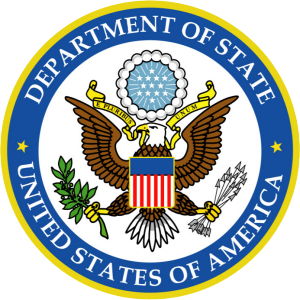Within its Country Report on Terrorism in Middle East and North Africa, the U.S. Department of State assesses the counterterror measures undertaken by Bahrain and Saudi Arabia in 2014. Key among these measures is the implementation of anti-terrorism laws intended to better facilitate the prosecution of terror offenses. In both countries, these laws have given government agencies greater leeway to criminalize basic freedoms and persecute human rights defenders.
The report’s section on Bahrain identifies many human rights concerns with the government’s counterterrorism practices. Notably, the report highlights the concerns of opposition societies as well as human rights organizations over the newly-broadened Anti-Terrorism Law. The report warns that since its expansion in July 2014, the law defines terrorism in such a way that the Bahraini government could use it to “prosecute or harass individuals for their criticism of the government.” The report also points out that the “inability of the government and political opposition to reach an agreement on political reforms threatened to fuel further domestic unrest, upon which violent opposition groups could seek to capitalize.”
Additionally, the report notes that the State Department was forced to cancel nearly all Antiterrorism Assistance (ATA) courses in Bahrain due to “Leahy vetting challenges.” Although the report does not explain the implications of this statement, the “challenges” that prevented the State Department from implementing its ATA programs under the Leahy Law likely relate to the ongoing abuses perpetuated by security forces against peaceful protestors, political prisoners, and members of the opposition. While it is encouraging that the State Department report provides this subtle recognition of the gross violations of human rights by Bahraini security forces, it is unfortunate that in the report’s analysis of terror-related prosecutions in 2014, it does not call into question the validity of the court’s decisions or the Bahraini judiciary’s lack of independence in making its rulings.
In its section on Saudi Arabia, the State Department welcomes the Kingdom’s promulgation of the Law of Terrorism Crimes and Its Financing as not only an expansion of its “robust legal counterterrorism apparatus,” but also a “refine[ment]” of the existing body of anti-terror legislation.
One of the few things that the law’s ambiguous statutes have “refined” is the government’s ability to try and imprison nonviolent activists and proponents of reform on charges of “terrorism.” The report appropriately notes the concern of human rights activists who argue that the law provides an “overly-broad definition of terrorism [that] greatly inhibits freedom of expression and association.”
The report notes that “Saudi Arabia has a specialized criminal court for handling counterterrorism cases,” but it also notes that it was “used in 2014 to try human rights defenders.” The Specialized Criminal Court (SCC) to which the report refers is useful for expediting the Kingdom’s backlog of terror charges, but has also routinely exploited its expanded power to criminalize dissent and dismantle civil society. As ADHRB indicates in its series of reports on the Saudi government’s labyrinthine bureaucracy, Mapping the Saudi State, the implementation of the 2014 anti-terror law has directly enabled these systemic abuses.
Furthermore, although the SCC maintains jurisdiction over terror crimes, the cases it hears are determined by the Saudi public prosecutor’s office, the Bureau of Investigation and Prosecution (BIP). This would be wholly unremarkable if the BIP was not under the direction of the Ministry of the Interior (MoI), which oversees the investigation, arrest, detention, interrogation, and prosecution of potential terror suspects. This effectively gives the MoI, and not the judiciary, the full authority to interpret the anti-terror law.
This discretionary power of the two nations’ security apparatuses has led authorities to utilize their respective anti-terrorism laws to prosecute not just terror suspects, but any potentially “destabilizing” activity. To authoritarian monarchies, eager to conflate legitimate criticism with sectarian violence and terrorism, this mandate has meant the systematic prosecution of peaceful activists, minority religious leaders, and human rights defenders alongside members of the Islamic State and al-Qaeda. The State Department’s report highlights Bahrain and Saudi Arabia’s ostensible commitment to combatting extremism; in noting the legal ensnarement of human rights defenders, it also highlights a key obstacle to establishing sustainable security in the Gulf.
Chris St. Martin is a legal intern and Sam Jones is an advocacy intern at ADHRB





